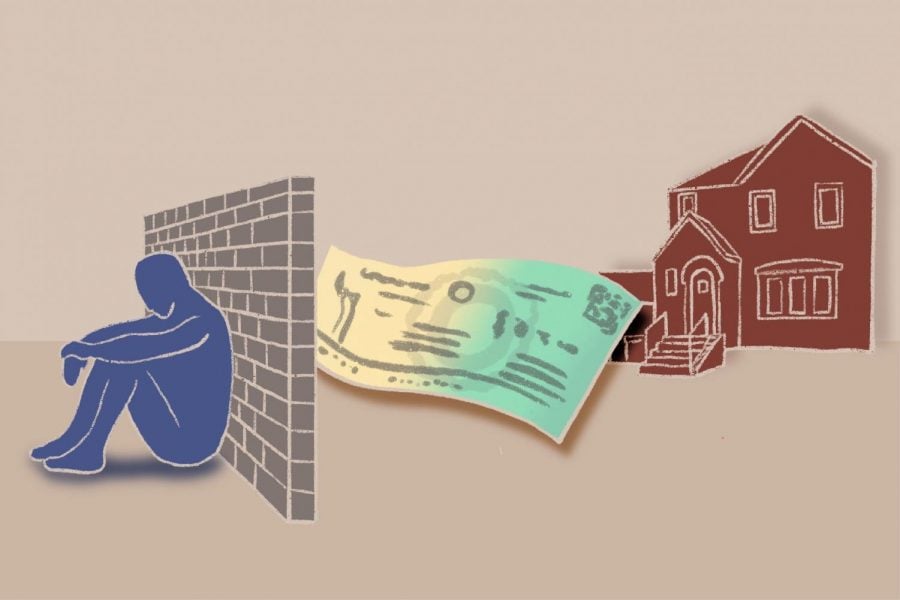Stimulus checks prove inaccessible for people experiencing homelessness
People experiencing homelessness face barriers to accessing their stimulus checks like not having a permanent address or bank account.
April 14, 2021
People experiencing homelessness have faced barriers in receiving stimulus checks even though they are eligible, Mary Frances Charlton, a youth health attorney, said.
The American Rescue Plan, a $1.9 trillion bill signed in early March, included a provision to send $1,400 stimulus checks to the American population. Charlton, who works for the Chicago Coalition for the Homeless, said the money is widely inaccessible to people experiencing homelessness because they tend not to have a bank account or a permanent address to receive the checks.
“The irony is, people who need these checks the most are having the most trouble getting them,” Charlton said.
Charlton said the money could make a life-changing difference for those experiencing homelessness. She added that many unhoused community members have told her the money they would receive from the stimulus checks would go toward finding housing.
According to Jennifer Kouba, associate director of development at Connections for the Homeless, some people without housing have accessed their stimulus checks through community organizations. Roughly 400 unhoused community members received their checks by mail through Connections, Kouba wrote in an email.
Kouba wrote that Connections provides community members with access to computers to help them access their stimulus checks. They can also receive help from a case manager if they need assistance with paperwork or forms.
Advocacy and Development Editor Katie Spoden of the Alliance to End Homelessness in Suburban Cook County said people without housing can also receive their stimulus money through mailed prepaid debit cards. However, this alternative still requires a mailing address.
The Alliance leads efforts in Cook County, excluding Chicago, to coordinate homelessness programs. Spoden said its efforts to provide housing in hotels have increased accessibility to stimulus checks for those experiencing homelessness.
“Because it’s not rotating, our case managers are able to build up those relationships with people who otherwise would have been a little bit more difficult to track down,” Spoden said.
Spoden said the hotel-based shelter model has supplied over 600 community members with housing, enabling relationships between case managers and those in the shelter. Meeting on a regular basis, Spoden said, helps managers connect community members with other resources to help them find permanent housing and acquire access to stimulus checks.
Despite providing community members’ an address for receiving their stimulus checks, other people experiencing homelessness remain left out, Spoden said. The heart of the issue, she added, remains that these community members lack permanent housing.
“We only have so many hotel rooms available, and we still do have people who we have not connected with,” Spoden said.
Email: [email protected]
Twitter: @KatrinaPham_
Related Stories:
— Nonprofit organization The Visible Faces helps local homeless community
— 4th ward aldermanic candidate Diane Goldring emphasizes increasing affordable housing and participatory democracy
— Evanston Community Foundation announces grants to help address homelessness, food security and mental health












